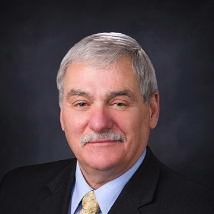With almost no opposition to speak of, the Governor’s Task Force for Improving Education adopted a full and far-ranging slate of 21 proposed recommendations Friday.
The task force included a wide array of education stakeholders — including some who were at odds during the 2012 campaign, which culminated in the Students Come First repeal.

“We thought this would be… a really difficult, acrimonious, hard and unpleasant (process),” Chairman Richard Westerberg said. “It turned out to be little difficult, but none of those other things.”
The recommendations approved Friday include:
- A drastic change in teacher pay, moving to a three-tiered career ladder tied to licensing. Such a move would increase minimum teacher salaries from $31,000 to $40,000 and give distinguished teachers the opportunity to earn as much as $60,000 per year.
- Restoring $82.5 million in operations funding – sometimes called discretionary funding – cut from the public schools budget since 2008-09.
- Advancing students through school based on mastery, instead of simple competion of a full year at a grade level. The plan, which could require a major overhaul of the school funding system, would “include explicit, measurable, transferable learning objectives.”
- Providing students and teachers with “adequate access to a technology device” and the educational content that goes with it.
Mike Lanza, who helped lead opposition to the Students Come First laws through the group Idaho Parents and Teachers Together, said the new technology recommendation should not be confused with Proposition 3, which would have furnished leased laptops to high school students.

First, Lanza said the new recommendation does not call for one-to-one computing device or specify a type of technology. Second, the task force did not call for taking money from the teachers’ salary pool to pay for technology.
“We debated at length about the wording of that proposal and, in fact, the word ‘adequate’ was something we reached only after a lot of discussion and a couple big distinctions were made between this and what we rejected last year,” Lanza said. “When we opposed Students Come First from the outset, we said the parents and teachers opposed to those laws are not opposed to technology. We want kids to have equal access … to this good tool.”
Gov. Butch Otter will review the recommendations, work with the Division of Financial Management to estimate costs and determine which existing rules and laws would need to be changed.
Otter aides said the proposals should be reviewed within a few weeks, and Otter may reconvene task force members for a briefing.
After that, the next moves are up to Otter and the Legislature.

Senate Education Committee Chairman John Goedde, R-Coeur d’Alene, said task force members shied away from setting priorities. Assigning priorities and finding funding will be the biggest challenge for Otter and lawmakers.
“If you have only got $50 million, for example, in additional funding to put into education, does it go to licensure so you’re going to have different levels of compensation for teachers or does it go into operations funds so they can afford to keep the lights on and buy buses?” Goedde said. “That will be what the toughest conversation is, how to spend the limited additional resources that we have.”
Friday’s meeting represented the culmination eight months’ worth of work. The task force first convened Jan. 11, broke into smaller subcommittees and toured the state soliciting input from parents, educators and residents.
“I am frankly surprised at the quality and depth of the recommendations that are coming out from this task force,” Lanza said. “Now I think there is more work ahead of us in we have to carry this to the public and sell it to them.”
Madison School District Superintendent Geoffrey Thomas was the only task force member to vote against anything. Thomas opposed the second proposal, calling for supporting “rigorous and successful implementation of the Idaho Core Standards.”
Thomas pointed to the opposition residents voiced during the task force’s previous listening session in Idaho Falls and said he shared “deep concerns” about the new standards.
Thomas also took issue with arguments that higher standards could reduce the need for remediation once students get to college.
“It needs to be stated publicly … that there is a difference between high school and postsecondary education,” Thomas said. “That doesn’t mean that what happened at the lower level was bad.”
In the end, the proposal to support Idaho Core Standards passed easily.
Twenty-seven of the 31 task force members attended Friday’s meeting, held on Boise State University’s campus and broadcast via live online stream. The Idaho Association of Commerce and Industry’s Alex Labeau, Idaho Teacher of the Year Katie Pemberton, Idaho Parent Teacher Association’s Laurie Boeckel and Grangeville High School principal Steve Higgins were absent.
More reading: For a detailed look at Friday’s task force meeting, click on Kevin Richert’s live blog.
